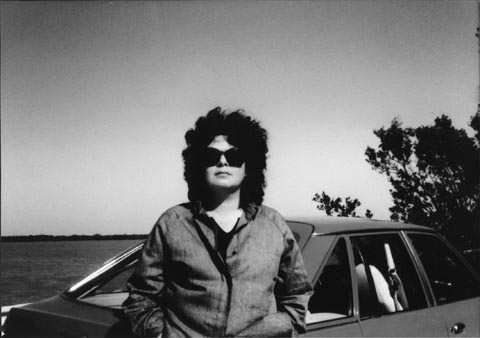Michelle Cliff (1946-2016): Writer, Critic, and Fighter of Racism and Homophobia

Michelle Cliff was born in Kingston, Jamaica on November 2, 1946. She graduated from Wagner College in New York City in 1969 and then from Warburg Institute in London in 1974 with a PhD in the Italian Renaissance. A novelist, poet, short story writer, and literary critic, Cliff’s works seek to retell history, addressing political and cultural issues. Cliff spent much of her childhood in New York, as her parents immigrated to the United States to look for better economic opportunities. She would return to Jamaica frequently to visit relatives before anchoring herself in the United States. This movement and exposure prompted her to adopt a multicultural identity, for she felt she could not limit her writing to just one place.
Cliff was born into a mixed race family, and as the lightest-skinned member of her family she was urged to pass for white when possible. This colonialist mentality, along with overt and subtle pressures to comply with a heterosexual ideal, has informed much of her writing on identity as she grapples with racism, sexuality and what it means to live in a liminal state. While working with the publishing company Norton, Cliff met the poet and essayist Adrienne Rich in 1975. They would become life-long partners until Rich’s death in 2012.
Cliff’s first novel, Abeng (1984), presents Clare Savage, a light-skinned Jamaican girl who befriends a dark-skinned girl, exposing the complications and realities of race in the Caribbean. Additionally, Cliff has written the novels No Telephone to Heaven (1987), which continues to follow Clare’s trajectory through life, and Free Enterprise (1993), short story collections Bodies of Water (1990) and The Store of a Million Items: Stories (1998), and collections of poetry including The Land of Look Behind: Prose and Poetry (1985). Cliff also served as editor of The Winner Names the Age: A Collection of Writing by Lillian Smith (1978).
Like in Abeng, Cliff tackles issues of race, sex, and representation in her novel Free Enterprise, which wrestles with the absence of references to Black women collaborators in official versions of the 1859 Harper’s Ferry Rebellion:
And when the smoke cleared the name officially attached to the deed was John Brown.
Who has ever heard of Annie Christmas, Mary Shadd Carey, Mary Ellen Pleasant?
The official version has been printed, bound, and gagged, resides in schools, libraries, the majority unconscious. Serves the common good. Does not cause trouble. Walks across tapestries, the television screen. Does not give aid and comfort to the enemy. Is the stuff of convocations, colloquia; is substantiated—like the Host—in dissertations. (16)
Michelle Cliff [visited the University of Kansas in October, 2000] to give a public reading, where she read from The Store of a Million Items and Free Enterprise. Cliff also led a writing workshop.
Cliff passed away on June 12 at the age of 69 at her home in Santa Cruz, California.
Keep reading to learn more on the works and life of Michelle Cliff:
Casteel, Sarah Phillips. “Writing Under the Sign of Anne Frank: Creolized Holocaust Memory in Michelle Cliff and Caryl Phillips.” Modern Fiction Studies 60.4 (2014): 796-820.
Edmondson, Belinda (1993), “Race, Writing, and the Politics of (Re)Writing History: An Analysis of the Novels of Michelle Cliff.” Callaloo 16(1): 180-191.
Hornung, Alfred and Ernstpeter Ruhe. Postcolonialism & Autobiography: Michelle Cliff, David Dabydeen, Opal Palmer Adisa. Georgia: Amsterdam Press, 1998.
Lionnet, Francoise. “Of Mangoes and Maroons: Language, History, and the Multicultural Subject of Michelle Cliff’s Abeng.” De/Colonizing the Subject: The Politics of Gender in Women’s Autobiography. Ed. Sidonie Smith and Julia Watson. Minneapolis: University of Minnesota Press, 1992.
Stecher, Lucía. “Michelle Cliff’s Into the Interior and the Trope of the Solitary Female Immigrant.” Callaloo 36.3 (2013): 811-821.